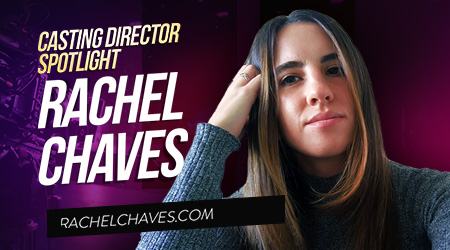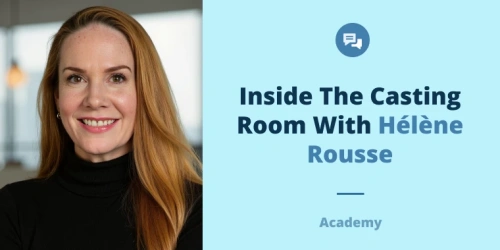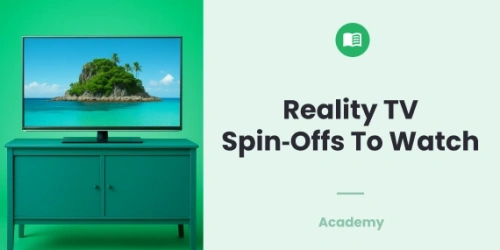Welcome to the Spotlight. In this weekly series, we sit down with prominent casting directors, producers and talent to discuss the entertainment industry, as well as provide some insight and advice for actors in their quest for the limelight. In this interview, we sit down with Rachel Chaves, Casting Director of rachelchaves.com, and talk about her journey to becoming a successful Casting Professional in the Toronto area.
How did you become a casting professional? What's the backstory here?
My interest in casting started when I was working as a talent agent. I was fascinated by the process and wanted to see what it was like being on the other side of the emails. Fast forward a few months after I graduated university, I began casting short films and eventually got a position as a casting associate for a commercial casting company here in Toronto.
Which casting calls or roles were the biggest challenges for you and why?
Most recently, I was tasked with casting ‘real people’ in Toronto with specific stories for a commercial. This project started off as a general casting call for people who have faced barriers in the workplace, but it quickly turned into ‘we want a blind pianist or someone who was previously incarcerated and now has a job in media’.
While they were open and willing to adjust the creative to fit people’s stories, they did have stories, as you can see above, that they wanted filled. This was also a challenging one since they had to build scenes around the people they cast, so only once the ‘real people’ were booked, were we able to do a rush casting for talent to fill out the scenes.
How do you spend your free time?
I spend my free time taking on small projects where I can and when I’m not doing that, I’m relaxing. I like to get out as much as possible and do new things, but on certain days, I like to stay at home, relax, and bake something.
If you had to choose an actor to play you in a biopic, who would you choose?
I never thought about this, but the first person that came to mind was Jennifer Aniston. I loved her since watching Friends and more recently in The Morning Show. Jennifer can play such a range of characters; I would love to have her play me.
What’s your most exciting project right now?
I am currently casting for women who have unique or demanding jobs for a hair product commercial. It’s interesting to see women who work in all these unique jobs and in some cases, careers that are male dominated.
What’s the most memorable audition that you’ve been a part of?
I have a few memorable auditions for different reasons, but more recently it was a short film I cast called Beach. I was casting the lead role who was a young woman who faced body self-esteem issues. In the callbacks, the director wanted to dig into that with the actors. It was incredible to see so many women be so open and vulnerable about how they view their body. It was great to be part of that experience and it inspired me to get more comfortable about talking about my own body.
Another one that was a lot of fun was for a cannabis brand. We were casting performance wrestlers in an actual ring. It was so fun to see these wrestlers dressed up and “wrestle” with other people. They were jumping off the side of the ring and actually performing moves on each other, it was so awesome.
What are the typical mistakes actors make in the casting process?
The biggest mistake that I see is not following instructions, which applies to different steps throughout the casting process. I notice it most in self tapes and callbacks. In the self-tapes, actors will skip an instruction, not answer a particular question, or in some cases not read the full sides.
I also notice when I request actors to fill out a sign in form online, a lot of the time they won’t. If we ask to fill out a sign in form, there’s a reason. It takes a lot of time to figure out who hasn’t done so yet and chase them to do it, especially when it’s time sensitive.
How can they improve their chances of getting cast?
I always find it challenging to answer this question. We’re always casting different roles and as such, we are always looking for different talent; not every actor is perfect for every role. I think it always helps to just be yourself, which can be challenging when you are doing a self-tape, but it’s great to see actors as they normally are. In addition to that, if you want to be a serious actor, put in the time to work on your craft. Taking different acting classes and working on small projects is a great way to build your resume and get your name around.
What should aspiring talent know before they apply to your casting calls?
Aspiring talent should always read through project details before applying to a casting call. It’s important to make sure that you do really fit the role and that you are available on the dates required. You should focus your time and effort on projects that you would be a good match for and available to participate in. This will save you time, as well as everyone involved in the project.
What would you suggest to other people who are seeking talent? What are the typical mistakes people make when searching for talent?
I would suggest that if you are seeking talent to have a clear idea about what you are looking for. When you have such an open role, it’s hard to narrow down who you want to see because there are just too many options. If you have a clear idea of what you’re after, you save yourself, actors, and agent’s time.
What do you think any casting professional needs in order to succeed?
In order to succeed, which is something I am still learning to do, is to put yourself out there and make connections with people involved in the industry. I consider myself an introvert, but in an industry like this, connections can go a long way. You have to put yourself out there to meet producers, directors, and other filmmakers so that they know what you do and hopefully come to you with future projects.
How do you notice the difference between aspiring talent who can “make it” and those who can't?
Aspiring talent that are serious about a career will put in the time to work on their craft. As I mentioned before, having training/acting courses done also shows that you are working on your craft. When you first start out and are just dipping your feet into the industry, working on small projects is a great way to work on your acting as well as build your resume.



